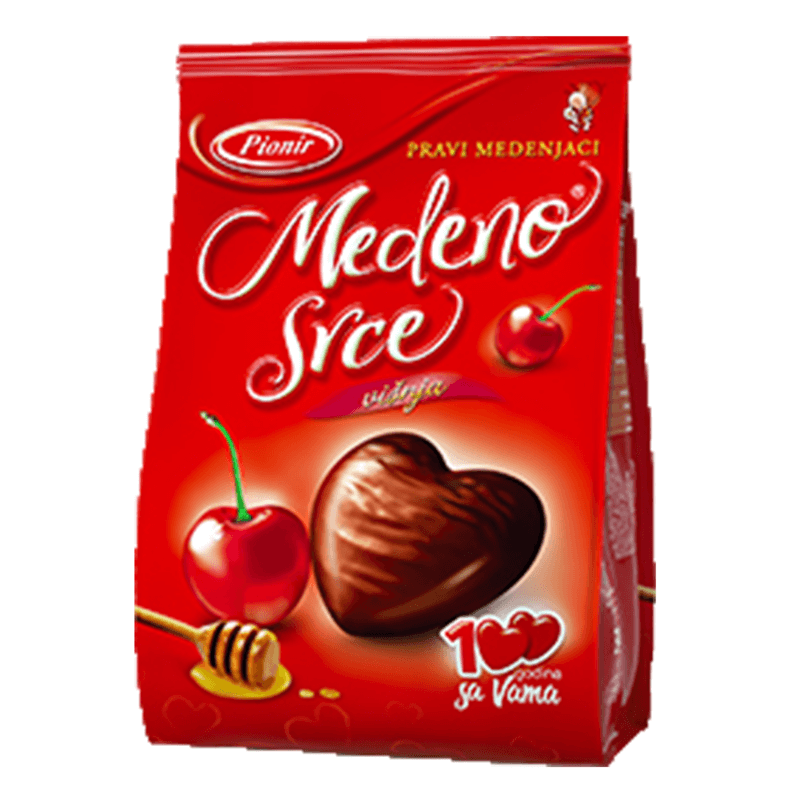Moving Vegetables: Croatia's Finest Food Tradition
March 23, 2023 - Growing one's own food is a big thing in Croatia, but how to get the fresh produce to other family members all over the country? Meet the fabulous culture of moving vegetables. Premiering tonight at 19:53.
Food in Croatia is fantastic.
And so, so fresh.
With so many families growing their own food, it is not a long journey from the family field to the table. Or is it?
Over the years, I have learned that it is not possible to go on a long journey in this region between two cities without a boot full of vegetables for a friend or family member in the destination city. And then to have your car filled with a boot full of other vegetables for the return journey.
And if you haven't driven from Dalmatia to Zagreb with 30 cabbages in the car, only to do the same journey in reverse with 30 cabbages of a different sort 6 months later, are you even living in Croatia?
Meet the fabulous, fabulous culture in Croatia (and the wider region) - moving vegetables!
****
You can subscribe to the Paul Bradbury Croatia Expert YouTube channel here.
What is it like to live in Croatia? An expat for 20 years, you can follow my series, 20 Ways Croatia Changed Me in 20 Years, starting at the beginning - Business and Dalmatia.
Follow Paul Bradbury on LinkedIn.
Croatia, a Survival Kit for Foreigners is now available on Amazon in paperback and on Kindle.

20 Ways Croatia Changed Me in 20 Years: 6. Moving Vegetables
July 14, 2022 - Twenty years a foreigner in Croatia. Part 5 of 20 Ways Croatia Changed Me in 20 Years - the fabulous culture of moving vegetables.
About 15 years ago, I was driving through Republika Srpska from Hvar to Belgrade to visit friends in my father-in-law's commercial vehicle. It had his name on the side and Split licence plates. As I tried to cross the border, the guard eyed my passport and me with suspicion. What was a Brit doing driving a car he didn't own with Split plates through this lesser-travelled part of the Balkans, and did I have anything to declare?
Nothing at all, I replied. He was not convinced and so I had to show him what I had, which was not much. Just my bag and 20 kilos of lemons and 20 kilos of potatoes, gifts for the family in Belgrade from the family field on Hvar from my father-in-law.
"You are bringing potatoes to Serbia? You think yours are better than ours?" Now he was really suspicious. We spoke in Serbian and Croatian, and I explained that they were a gift from my father-in-law to his relatives. The guard asked if he could take a few to try, and I told him to help himself. I was free to go. Almost.
"Just one more thing, Nije punac, nego tast." Punac is the Croatian word for father-in-law, tast is the Serbian.
A week later, I returned to Hvar by the same border, this time with about 20 kilos of paprika, a gift in the opposite direction. He just smiled.
It was one of the many examples of one of my favourite cultural practices in Croatia and the wider region - moving vegetables.
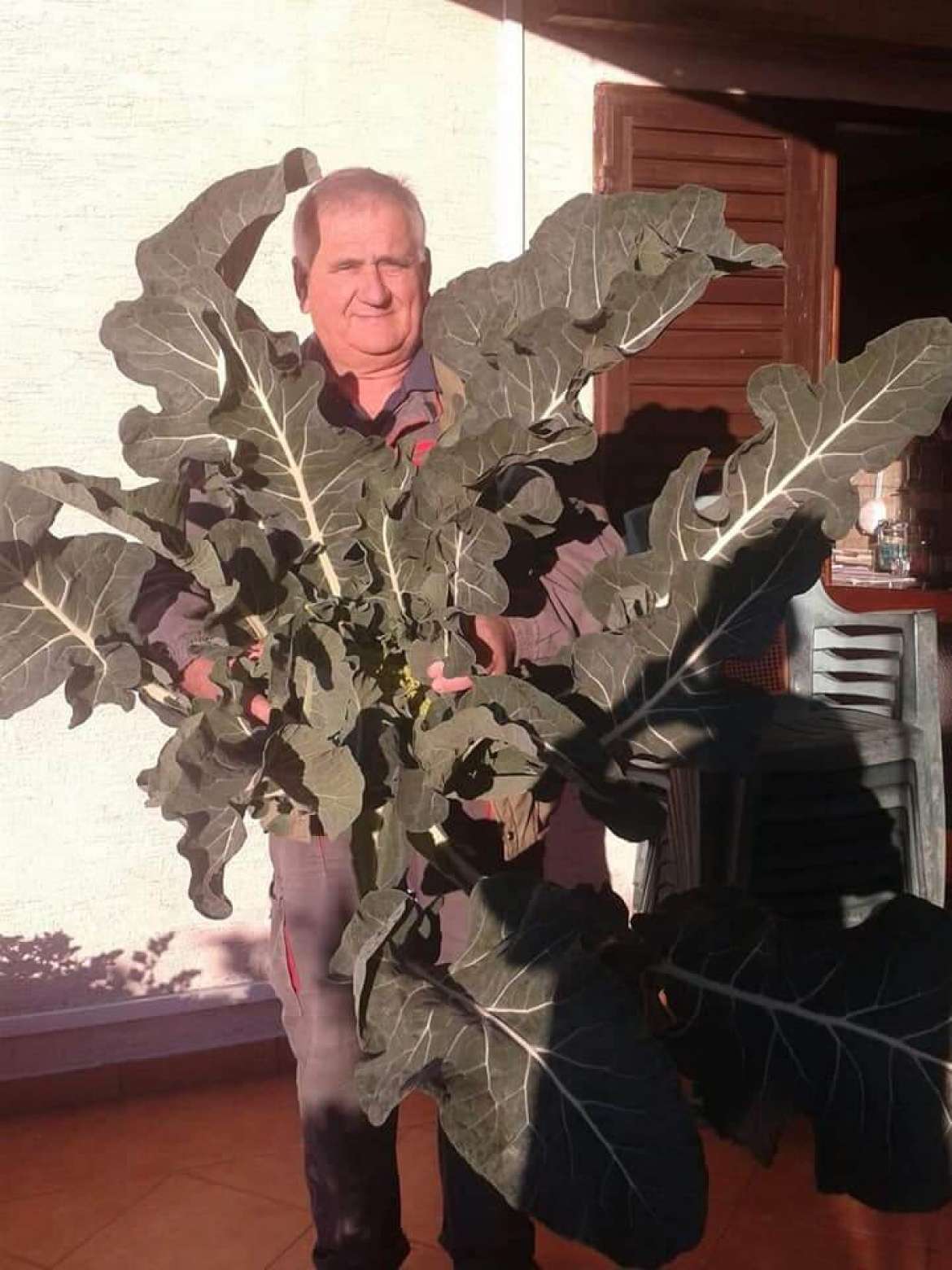
(My late father-in-law, whose tireless efforts in his family field, combined with the excellent cooking of his wife, produced the finest home-cooked food of my life)
I must confess that I had never thought about vegetables in my life until I came to Croatia (apart, perhaps, from my time as an aid worker in post-genocidal Rwanda in 1994 when my project was donated 1.5 million sachets of vegetable seeds with no packing list - it took 3 weeks to account for our gift), but vegetables (and fruit) loom large in my daily life in Croatia, and my 20 years in Croatia has made me completely rethink and appreciate local, quality food, as well as the cultural importance of transporting it to friends and extended family when driving from A to B.
Most of the credit for my enhanced passion for vegetables is due to my wife and her parents, whose family field has been the source of much of the goodness that I consumed during my 13 years on Hvar. The field was my late father-in-law's passion, and my wife and mother-in-law translated the fruits of the field into delicious and healthy local Dalmatian fare. Seeing my kids have an affinity with blitva (Swiss chard) at an early age was in direct contract to my fight every Manchester Sunday lunch to avoid the two Brussels sprouts on my plate.
Shortly after I moved here in 2003, I was in the grocery shop in Jelsa in November. There was a Brit, also living on the island, in front of me asking to buy some tomatoes - where were they?
"It is November," came the reply. "It is not the season. No tomatoes."
It had not occurred to her that tomatoes even had a season. Or to me. And if they did, when was it? Back in the Manchester supermarkets, tomatoes - very bland tomatoes - grew 24/7, 365 days of the year.
And so began one of the great transformations of my time in Croatia. I moved from being a spoiled city boy who could have any fruit or vegetable he wanted from a major supermarket chain to only being able to have fruits and vegetables when they were in season. But what I lost in availability, I more than made up for in quality. The wild asparagus may only be available for a few weeks in Spring, but WHAT a taste. (If you are an asparagus fan, you really have not tasted asparagus until you try the wild Dalmatian variety). The cucumber and tomato salads in summer are simple, but refreshing and so full of goodness. And I will never forget seeing my two kids return to Hvar after we moved. Seeing them breathing in the scents of that aromatic island was a joy to watch that November, but watching them head straight for the mandarin trees to pick a few mandarins to eat immediately was a wonderful sight. You don't get that experience when your mandarins grow in Manchester supermarkets.
After several years, I visited Manchester once more and visited a supermarket. I was shocked when I looked at the tomatoes. Where was the life, the colour. I bought some to try, but they tasted mostly of water. Dalmatia spoils you that way. Once you get used to wholesome homegrown Dalmatian vegetables, it is hard to find the quality elsewhere.
But the culture of moving vegetables was everywhere. I must admit I was a little confused one trip to Zagreb when I got into my car to find 30 cabbages and 10 litres of wine in the back to give to my brother-in-law in Zagreb. There was nothing wrong with that, but then a few months later, I found myself transporting a similar number of a different kind of cabbage in a different direction. Trips to Albania would always include a mandatory stop in the Neretva valley to stock up on watermelon, peaches and other treasures, and the roads of northern Croatia are always bountiful for bulk buying of pumpkins and paprika.
I love it.
And if nobody is driving from A to B, does that mean that moving vegetables comes to a halt? Absolutely not! Having moved away from the island, we would be regular and grateful recipients of large packages sent via post. Olive oil, mandarins, tomatoes, blitva, grapes, and a host of other goodness. Heaven. And we were certainly not alone. In addition to the post, other parents use the 'Balkan DHL' Service: Fast, Cheap, Reliable & Unbeatable, one of the finest institutions in south-east Europe.
The majesty of vegetables and the lifestyle that surrounds it is one of the many untapped treasures of Croatian tourism, as very few people locally have understood its appeal to city boys like me. One Hvar man who did was a friend of mine who runs a luxury tourism business. He told me about the moment when he finally understood the secret of successful tourism.
"I was with some rich New York clients in an olive grove for lunch and olive oil tasting," he explained. "One of them pointed to a lemon tree and asked if he could pick a lemon. I told him to pick six and forgot about it immediately. At the end of the week, he came to me to thank me for an incredible week, but he also wanted to tell me about the highlight. Picking those lemons. He lived in New York, had never seen a lemon tree, and had only seen lemons in shops, bars and restaurants. It was a powerful moment, and I realised that authentic experiences like that which are free and all around us here can be sold for top dollar."
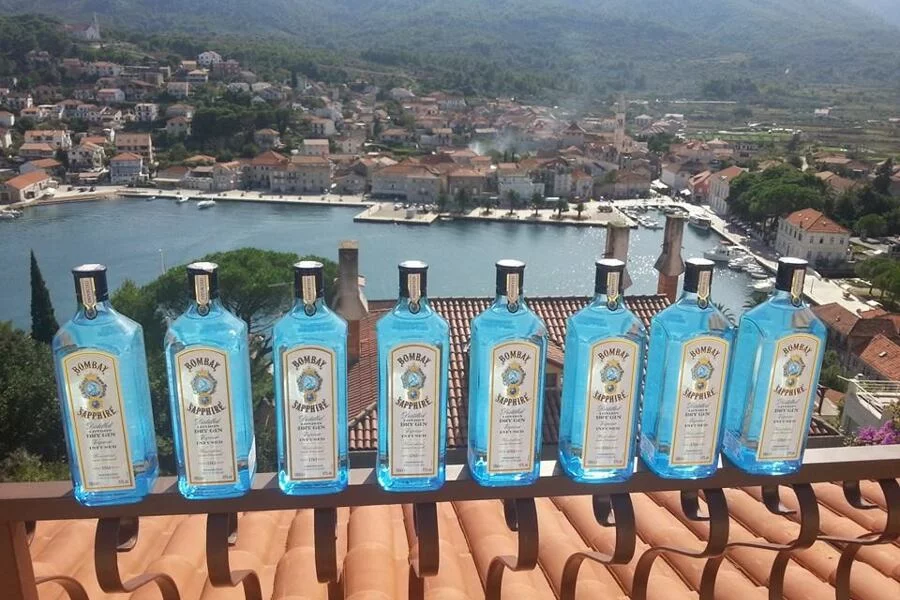
And I can definitely confirm the magic of the freshly picked lemon. Can there be any better case for the Dalmatian lifestyle than sending one of the kids out to pick a lemon from the family tree in the garden for the evening gin and tonic on the terrace?
****
What is it like to live in Croatia? An expat for 20 years, you can follow my series, 20 Ways Croatia Changed Me in 20 Years, starting at the beginning - Business and Dalmatia.
Follow Paul Bradbury on LinkedIn.
Croatia, a Survival Kit for Foreigners will be out by Christmas. If you would like to reserve a copy, email This email address is being protected from spambots. You need JavaScript enabled to view it. Subject 20 Years Book
Moving Vegetables: Hvar Beetroot Makes Borscht in Southern Russia
July 7, 2019 - The Croatian culture of moving vegetables goes global as never before, with the first Hvar beetroot used in homemade borscht in Pyatigorsk in southern Russia.
Life as a Dalmatian zet (son-in-law) is not easy.
Don't get me wrong, I have the best parents-in-law in the world, and they have been VERY accommodating over the years of this weird fat, pink English bloke their daughter dragged up from somewhere.
It is just that there are some fundamental differences in basic things. Like vegetables, and moving vegetables.

As a boy from Manchester, it is no secret that our vegetables are all grown in supermarkets, and the concept of seasonality simply does not exist.
So it was quite a shock to move to a gorgeous Dalmatian island and become part of a Hvar family which was very much connected to nature and the fruits of the field. Much of the food on the family table was grown by my father-in-law, and while he has always been outstanding with me, it is clear that a son-in-law digging potatoes rather than playing around on a laptop with a beer all day would have been a preferred option.

He is an amazing, hard-working man who has achieved great things from his humble beginnings. One of ten children who had to walk 90 minutes to and from school from Brusje to Hvar Town each day, he not only managed to build his own family house in Jelsa, but also put his four kids through university. And his passion was the field he bought almost 30 years ago, where the family olive oil (excellent), wine (very good) and daily fruit and vegetables come from.
That affinity to nature was one of the great things about bringing up children on Hvar (apart from the safety, community and of course the Adriatic), and this Manchester boy and entourage is now an enthusiastic olive picker each harvest. One of the few obligations of a Dalmatian zet.
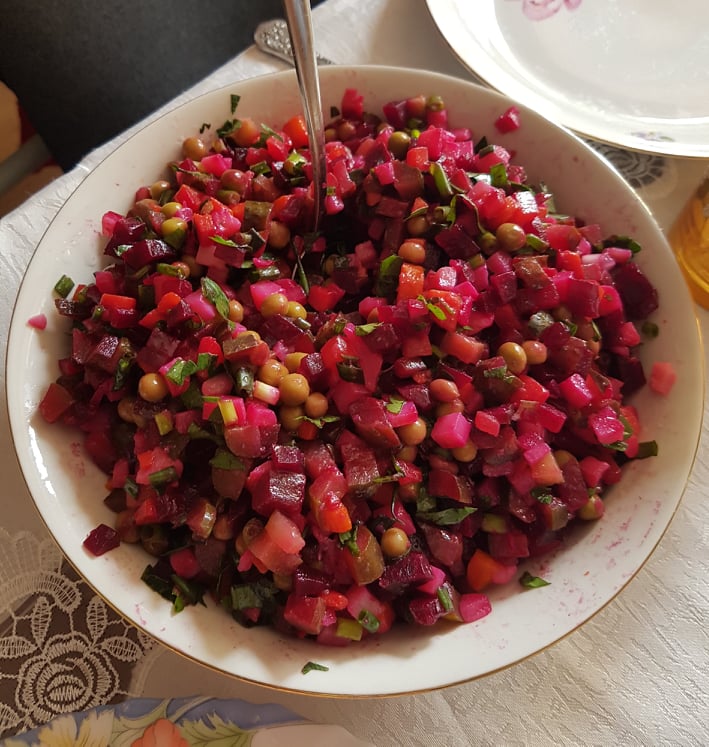
It wasn't long before I lived in Jelsa that I began to understand the importance (and generosity) of the whole moving vegetables scene. When we moved into the family house and the top floor apartment, there was a welcoming gift for me - a stainless steel tank of his homemade wine, marked Pol (a variation of my first name). It was incredibly generous and the tank which just kept on giving, until one day it gave no more...
But it was the journeys I remember the best. You are going to Zagreb to stay with my son? The boot of the car was filled with cabbage the next morning. And oddly, six months later, when I was making the journey in reverse, a boot full of different cabbage was making its way from Zagreb to Jelsa. I was totally immersed in the culture of moving vegetables.
I remember flying to London about 15 years ago from Graz, via Zagreb. As a passenger on the bus, I found the 10 litres of wine for delivery to Zagreb and the (VERY generous) 5 litres of olive oil for my family in the UK, quite a challenge, particularly as I tried to check in the oil at Graz Airport. But I was not only grateful but charmed by such a generous and natural way
And then, one day, my status as leading foreign child-in-law was challenged, as my other brother-in-law returned from the cruise ships with an exotic fiancee.
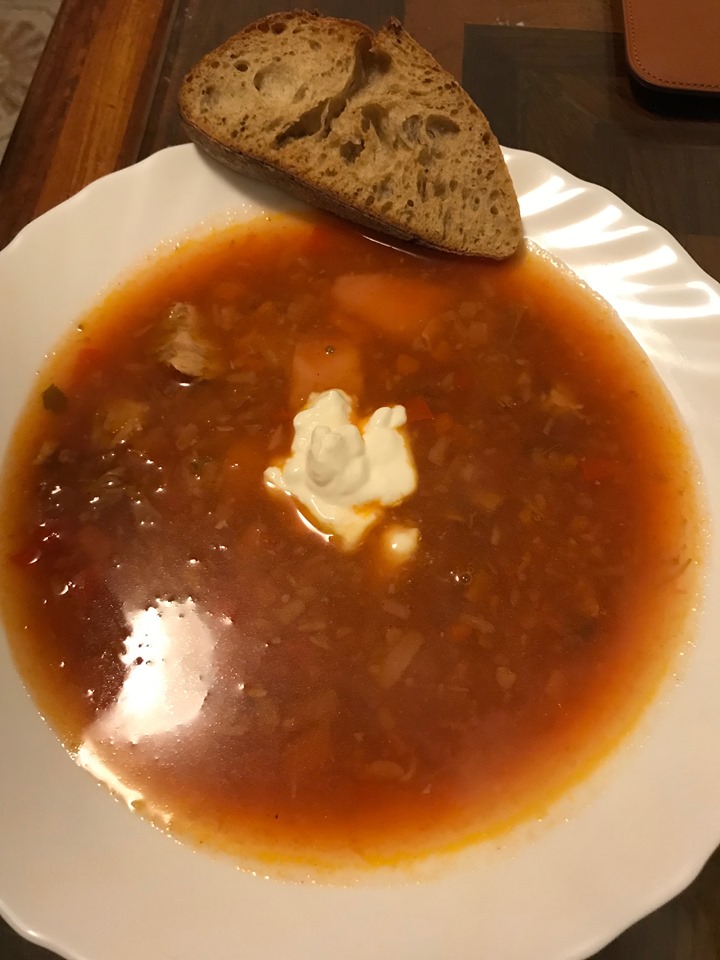
Julia was everything I was not - young, beautiful and a very good olive picker, and the first time she came to visit, she insisted on preparing dinner for her fiance's family - a really delicious borscht. My father-in-law was impressed, and I saw that I had lost my spot as preferred in-law forever.
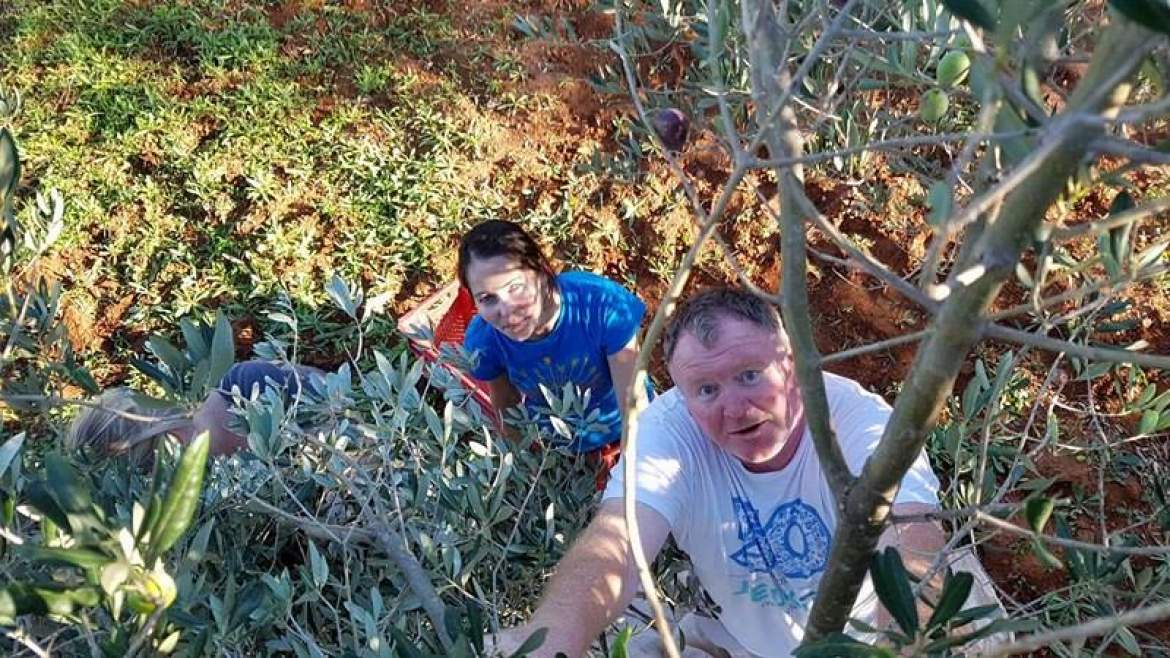
(A Russian and a Brit compete for the title of Best Foreign In-Law Olive Picker 2017 - there was only one winner, and it was not me)
She, too, was a child of the land, in a way that this boy from Manchester could never be. And as the young (now married) couple prepared to visit her family in Pyatigorsk in southern Russia, including her incredible babuska, who sounded like she had much in common with my father-in-law, discussions took place about the type of gifts they should take from Hvar to Julia's family.
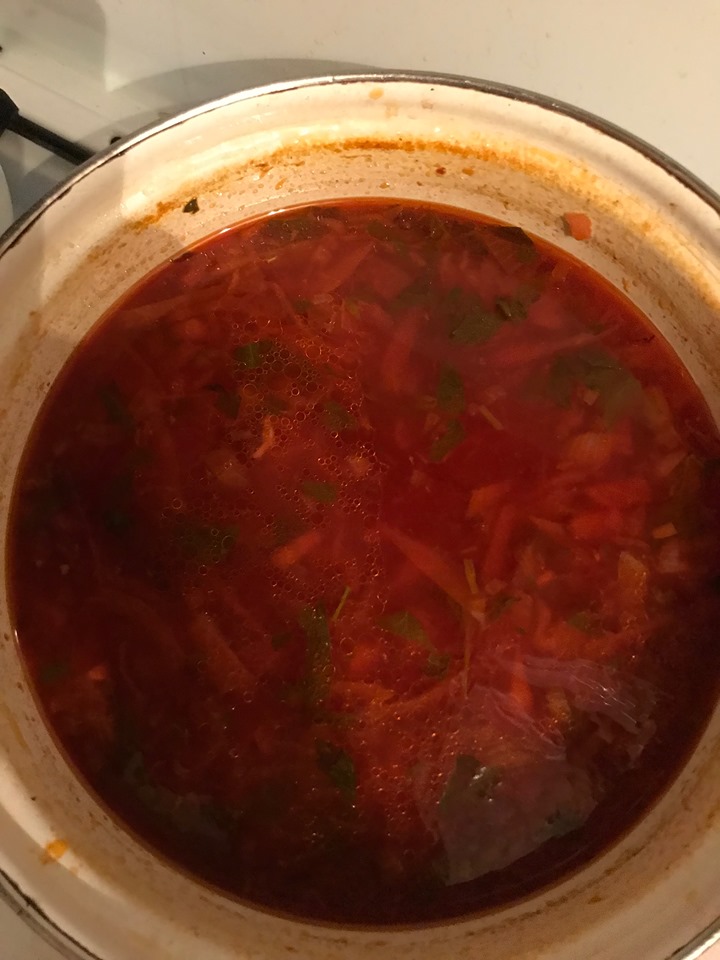
A golden moving vegetables moment, and my father-in-law came up with a most personal and culturally acceptable gift which really touched the hearts of Julia's family - Hvar beetroot from his field.
And that is how the first borscht in the history of Russia (we think) came to be made from Hvar beetroot. And not just borscht, but an array of salads and other dishes.
You wouldn't get that in Manchester.
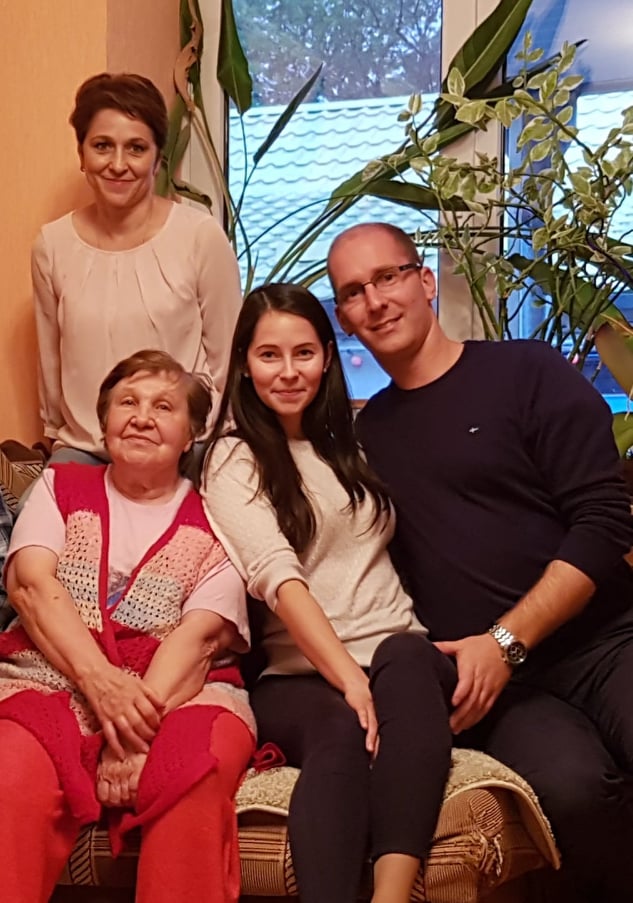
(Babuska and Punica)
Learn more about Moving Vegetables here.
Yugoslavia is Dead But Culture of Moving Vegetables Lives On
February 11, 2019 - Yugoslavia may be no more, but some bonds remain - the cult of moving vegetables, for instance.
I don't think I have ever lived in a country where people talk about food as much as they do in Croatia. With that close bond to the land, in a country where many people produce some of their own food, wine, olive oil and (how could we not mention) rakija, this is perhaps not surprising.
As a Manchester city boy, I find all this quite lovely, and I love the thought of popping out into the garden to pick a salad for lunch or (even better) plucking a lemon straight from the tree to add a little something to the evening gin and tonic. My father-in-law, pictured above, is an absolute legend when it comes to what his little plot of land can produce, even if the results can look terrifying, as in the picture above. Real men eat blitva.
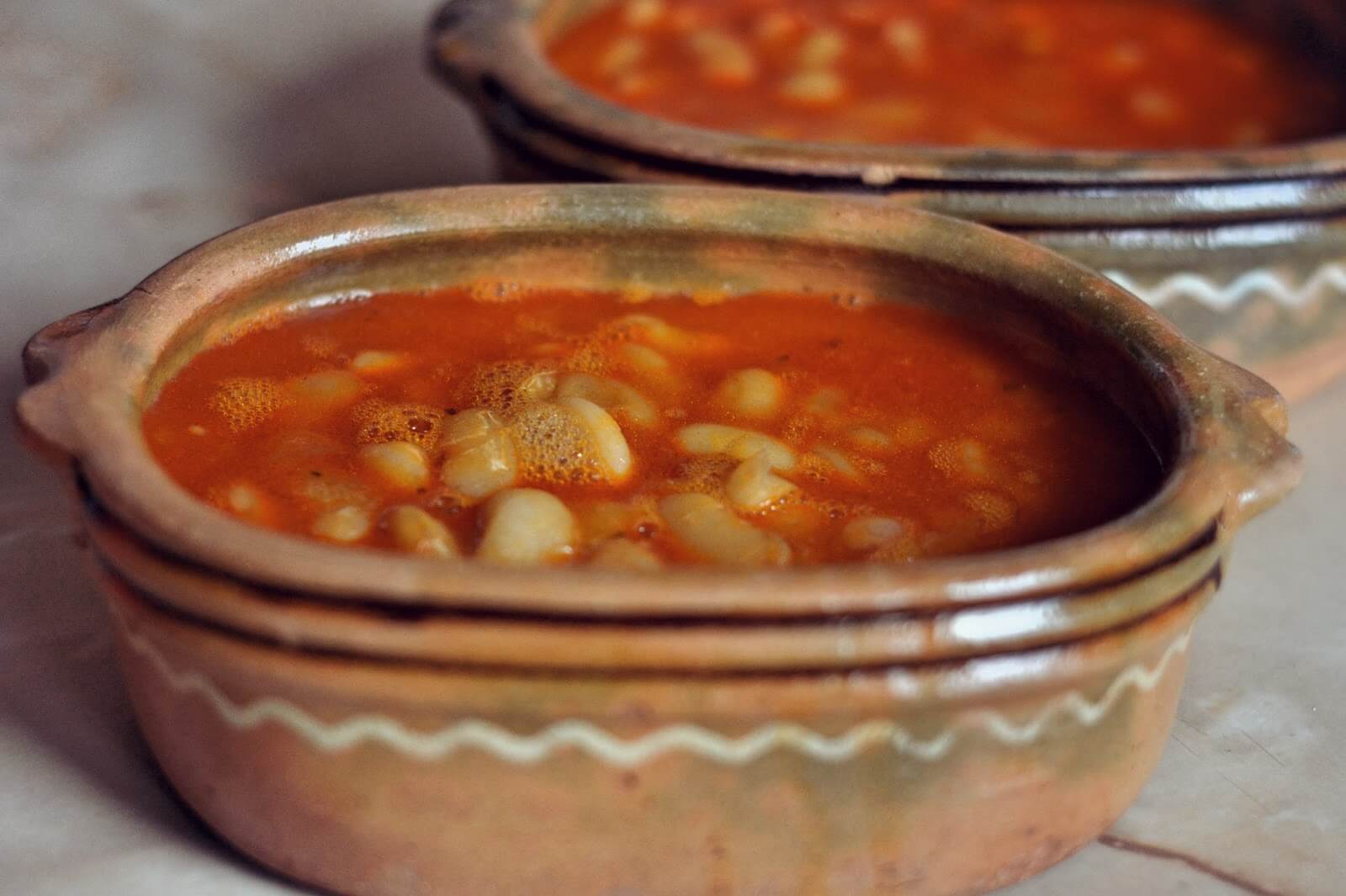
It was only after a few years of living here that I noticed something about my travels. I was always moving vegetables. A trip to Zagreb would include 20 kg of cabbage, as well as the customary oil and wine. Somewhat strangely, 6 months later, I found myself en route to Hvar from Zagreb with 20 kg of cabbage from my brother-in-law to my father-in-law. I was beginning to think there was some kind of moving vegetables obsession.
The more I travelled throughout the region, the more I found myself moving vegetables and other foodstuffs. Meat was always bought in Bosnia, especially before they introduced VAT a few years ago, and even more especially when the border guards politely informed me that I could only import 1 kg at a time, not the 20 kg I had with me. I could not return from Belgrade without at least 10 kg of paprika.
From Hvar to Belgrade and the aromatic smell of lemons or mandarins, depending on the season. I always seem to end up with 20 kg of my father-in-law's potatoes as well, which caused much confusion at the border between Republika Srpska and Serbia.
"Why are you bringing potatoes into Serbia? Do you English think we have no potatoes or something?"
"My punac (father-in-law) grows the best potatoes." I was ordered to open the van to let him inspect the potatoes, and he helped himself to a couple to try at home.
"Ok," he said, "but there is just one thing. We don't say 'punac' for father-in-law, it is 'tast.'
The inspiration from this article came from my flying visit to Jelsa this weekend. The Macedonian cafe owner of my previous local bar on the square was pleased to see me and we had a good catch up. Upon leaving, he handed me a bag - some kremsnitt cakes and a bag of white beans. Macedonian beans. It has become an annual tradition that he gifts my father-in-law these Macedonian beans each year as he returns from a holiday at home, and my punac in turn sends blitva and manderins downtown. The look of joy when my punac saw the white Macedonian beans the first time was one I will never forget. Memories of a former era.
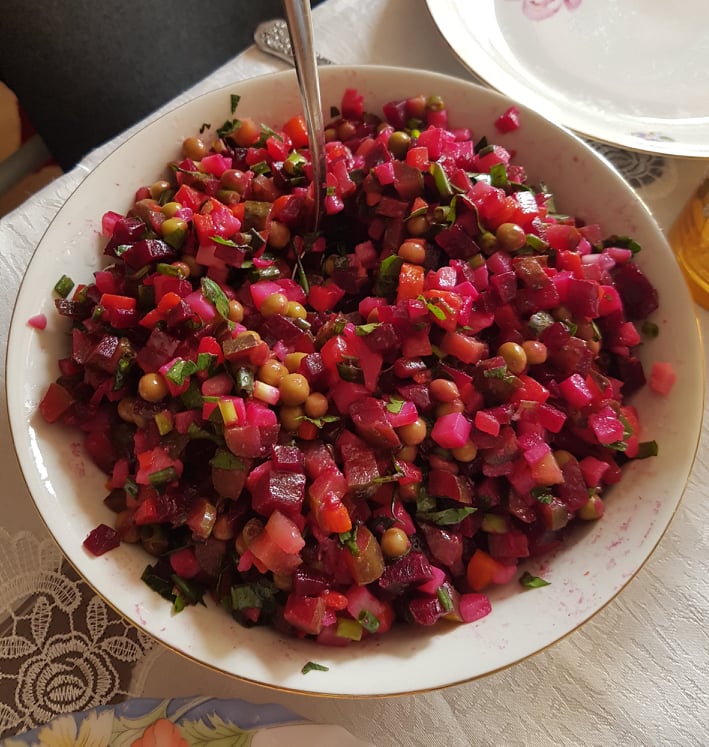
And even though it is almost 30 years since Croatia separated from Yugoslavia, there are other childhood memories which live on today. Two firm favourites from Serbia, for example, are Plasma biscuits and Medeno Srce (honey hearts chocolates).
These associations seemingly only exist in people of a certain age, for obvious reasons. Talking to Croatian friends in their early 30s yesterday, none of them had this kind of association, having lived all but their very earliest years in independent Croatia.
So while Yugoslavia is dead, its memory lingers on in certain ways, and the culture of moving vegetables is likely to continue, for another generation at least.
